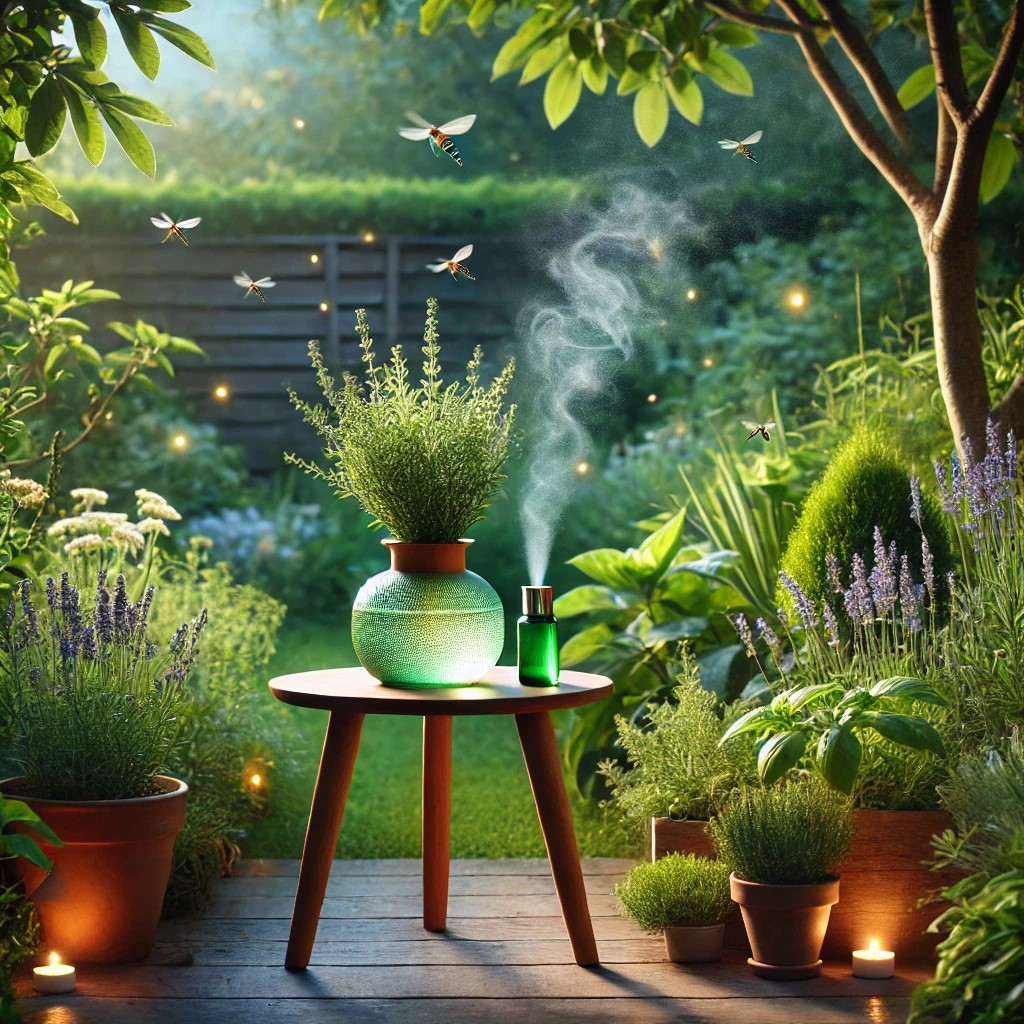
Mosquitoes are not only a nuisance but also potential carriers of dangerous diseases. However, combating them does not always have to involve chemical products. There are various eco-sustainable strategies to repel them effectively while respecting the environment.
1. Mosquito-Repellent Plants
Some plants release natural compounds that act as effective repellents. Growing them in your garden or indoors can be a natural and decorative way to keep these insects away. The most effective include:
- Lavender: Its aroma repels mosquitoes and other insects while also having calming properties.
- Citronella: Known for its characteristic lemon scent, it is one of the most effective natural repellents.
- Basil: Its strong fragrance acts as an effective deterrent against mosquitoes.
- Mint: In addition to its culinary uses, its smell is also unpleasant to these insects.
Placing these plants near doors and windows can significantly reduce the presence of mosquitoes indoors.
2. Essential Oils as Natural Repellents
Essential oils extracted from certain plants have repellent properties. They can be applied to the skin (always diluted in a carrier oil) or used in diffusers. Some effective options include:
- Eucalyptus or lemon oil: Recommended for offering over 95% protection for several hours.
- Lavender oil: In addition to repelling mosquitoes, it soothes bites.
- Cinnamon oil: Can eliminate mosquito eggs and repel adults.
- Tea tree oil: Has anti-mosquito and antifungal properties.
To create a homemade repellent, mix 10 drops of the chosen essential oil with 30 ml of almond or coconut oil and apply it to exposed skin.
3. Effective Home Remedies
There are natural solutions that can complement mosquito control:
- Apple cider vinegar: Mix equal parts with water in a spray bottle and apply it to clothing or in the air.
- Lemon with cloves: Cutting a lemon in half and inserting cloves creates a natural indoor repellent.
- Homemade yeast trap: Cut a plastic bottle, invert the top part, and place it inside the base with a mixture of water, sugar, and yeast. The fermentation will attract mosquitoes and trap them inside the bottle.
4. Preventive Measures to Avoid Mosquito Proliferation
Besides repelling them, it is crucial to eliminate conditions that favor their reproduction:
- Avoid stagnant water: Mosquitoes lay eggs in water. Empty and clean buckets, plant saucers, pet bowls, and any container that may collect liquid.
- Use mosquito nets: Placing them on windows and beds significantly reduces the risk of bites.
- Opt for suitable clothing: Wear light-colored, long-sleeved clothing, especially at dawn and dusk when mosquitoes are most active.
- Proper ventilation: Mosquitoes cannot fly well in air currents, so turning on fans can help keep them away.
5. Biological Control and Eco-Sustainable Technologies
In some areas, biological control can be an effective solution. Some examples include:
- Insectivorous fish in ponds that feed on mosquito larvae.
- Insectivorous birds such as swallows and bats, which can significantly reduce mosquito populations.
- Ultraviolet light devices to attract and eliminate mosquitoes without chemical products.
Eco-sustainable methods for repelling mosquitoes provide an effective and safe alternative to conventional insecticides. By combining the use of repellent plants, essential oils, home remedies, and preventive strategies, it is possible to reduce their presence naturally. Implementing these solutions not only protects people’s health but also contributes to ecological balance and environmental conservation.
If these solutions are not sufficient, you can always rely on the support of Eco Fauna Control for effective and professional management of mosquito-related issues.
